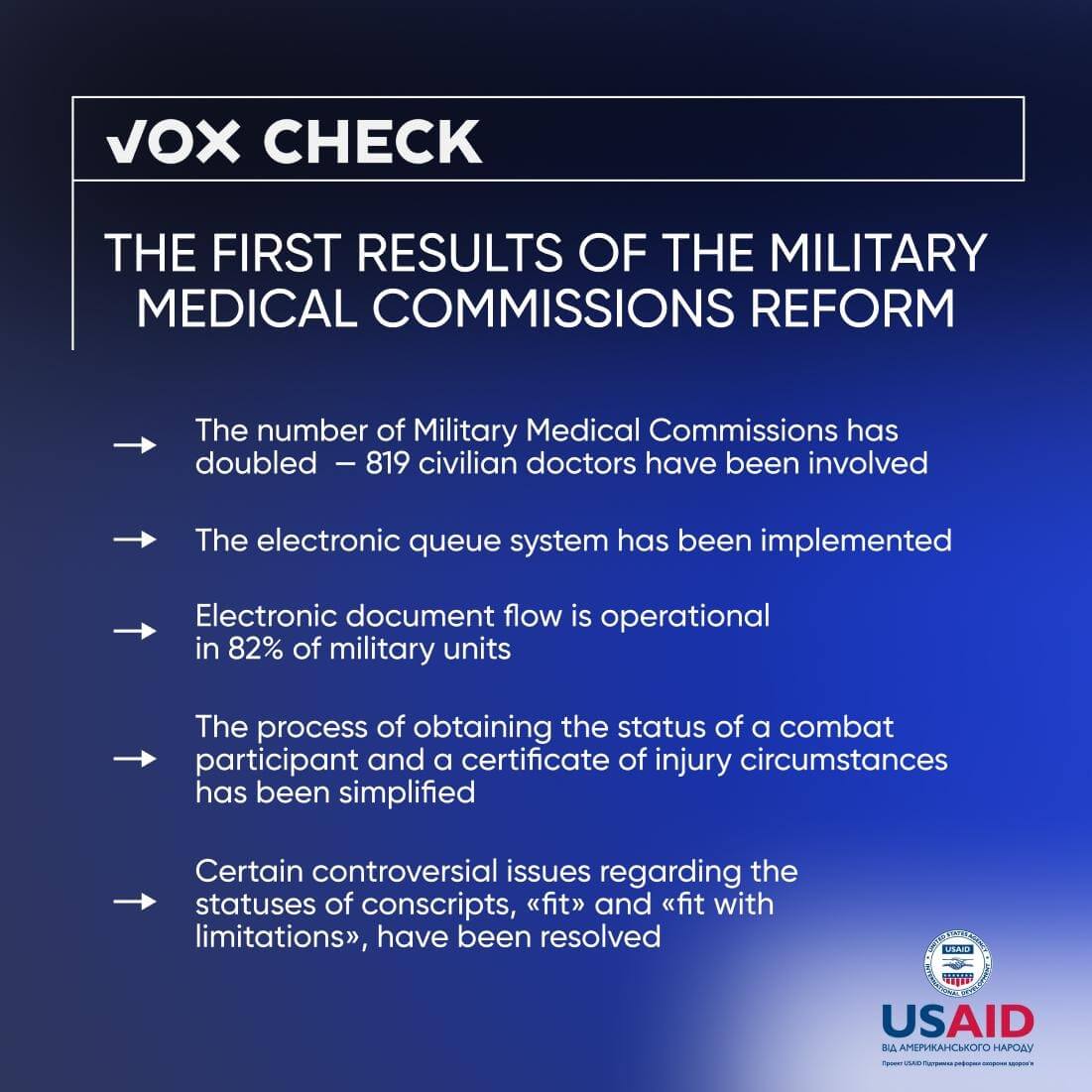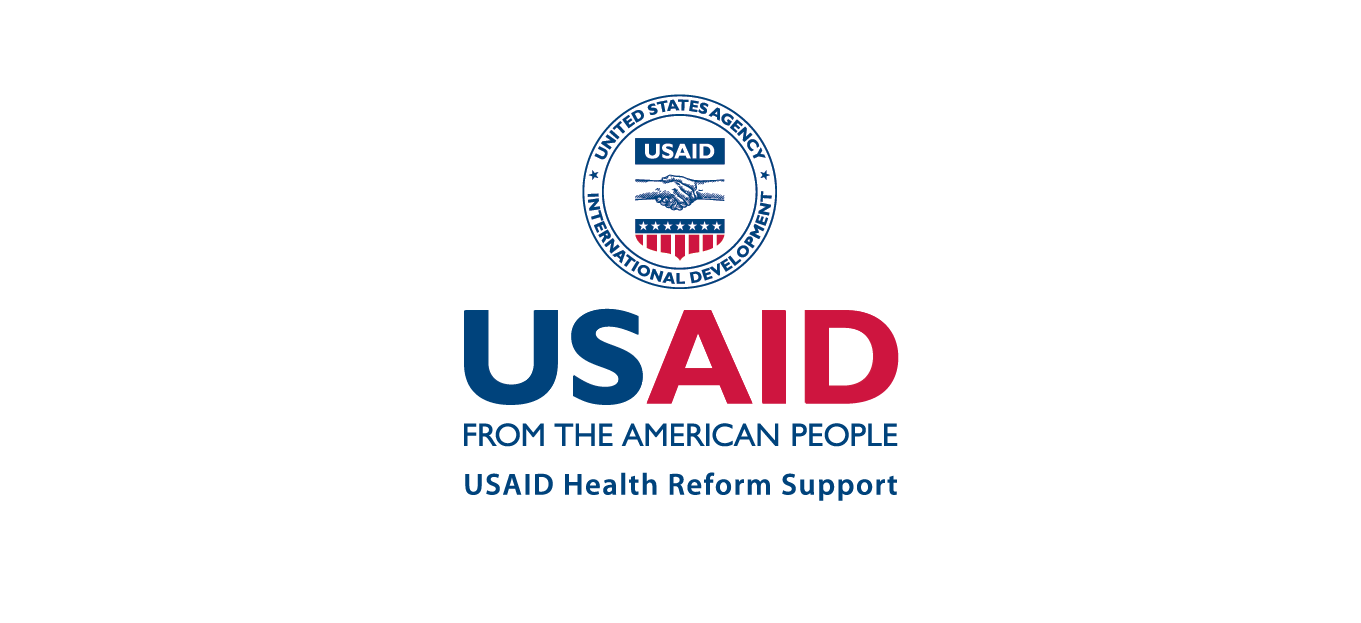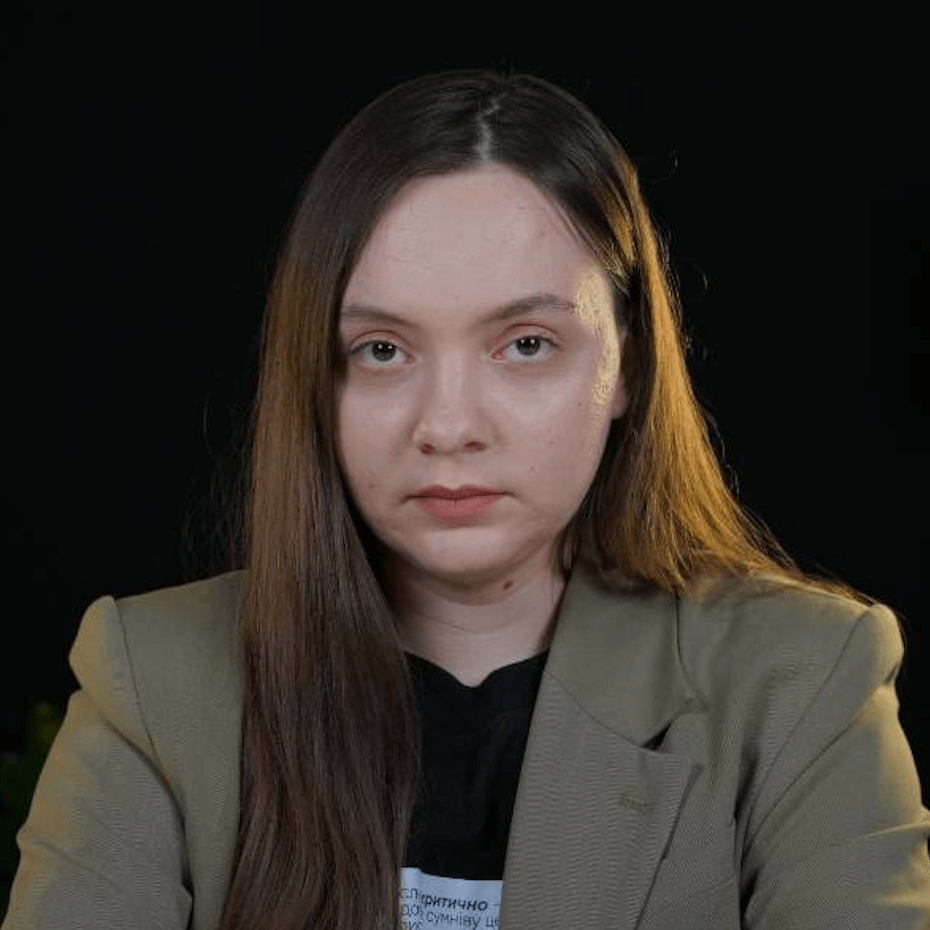Since August 25, the order of the Ministry of Defense of Ukraine on amendments to the regulations governing the operation of military medical commissions has come into effect. Its adoption is part of the military medical commissions’ reform, which the Ministry of Health of Ukraine has also joined. Among other things, the list of mild and moderate conditions with which conscripts are fit for military service has been expanded. Russians picked up this news and concluded that Ukraine is already mobilizing even “people with disabilities, those with HIV, and schizophrenics.”
With the support of the USAID Health Reform Support project, VoxCheck analyzes and refutes public health narratives spread in the information space of Ukraine, Belarus, and russia on a weekly basis.
Some Ukrainian Telegram channels are spreading information claiming that men with viral hepatitis, asymptomatic HIV, and mental illnesses will be drafted into military service. Russian sources, on the other hand, assert that Zelenskyi is already “sending even disabled individuals, those with HIV, and schizophrenics to their deaths.”
Screenshot of the post
What’s the reality?
This concerns Order No. 490 of the Ministry of Defense of Ukraine, “On Approval of Changes to the Regulations on Military Medical Examination in the Armed Forces of Ukraine.” According to the regulation, individuals with the mentioned illnesses were previously subject to conscription under conditions of martial law. The Medical Commission was tasked with individually determining whether a conscript was “fit” or “fit with limitations for service.” Now, the “controversial” articles have been removed, and everyone receives a unanimous verdict of “fit” under conditions of martial law.
These changes are part of the reform of the Military Medical Commissions. At the beginning of 2023, a working group was formed to address this issue, consisting of relevant ministries, parliamentary committees, units of the Armed Forces of Ukraine, and the NGO “Pryncyp.” This group conducted surveys of military personnel and military medical commissions staff, identified problems, and developed a roadmap for changes, including organizational, legal, and digital aspects. According to Ukraine’s Minister of Health, Viktor Liashko, the following priority issues were identified for resolution: long queues, excessive bureaucracy, paper-based document submission, the potential for corruption in decision-making, and insufficient funding for the system. As explained by Masі Nayem, co-founder of the NGO “Pryncyp,” lawyer, and military expert, the legislative changes are aimed at reducing corruption risks in the military medical commissions’ operations, particularly in the sale of conclusions regarding limited fitness or unfitness based on “controversial” articles.
Source: Ministry of Health of Ukraine
Let’s focus separately on the specific illnesses mentioned in the list. It’s important to emphasize that we’re not talking about the illness in general, but rather about the specific form of its course. All the articles that have been excluded pertain to mild forms, without accompanying or with minor complications. The corresponding diagnoses do not have a significant impact on a person’s way of life. Therefore, the “controversy” has been eliminated for the following articles:
Article 2-c. Clinically cured tuberculosis. This specifically refers to individuals whose tuberculosis process has stabilized due to treatment without residual changes in the body (scar tissue in various organs and their consequences, complications affecting the lungs and liver, etc.). However, if such changes do exist, the standard procedure for individual decision-making by the commission remains in place.
Article 4-c. Viral hepatitis with minor impairment of functions (of the liver). However, in cases of severe forms of hepatitis, individuals are removed from military registration. The same applies to articles 13-c, 17-c, 21-c, and 22-c (endocrine system diseases, central nervous system diseases, stress-related disorders, paroxysmal disorders) — the status of “fit” is only granted to conscripts with moderate and non-progressive manifestations of diseases, without accompanying complications.
Article 5-c. Asymptomatic carrier of HIV Z.21. This means that the virus has been detected in the body, but there are no illnesses caused by HIV. These individuals undergo antiretroviral therapy (ART), which reduces the concentration of the virus in the blood to a minimum. HIV cannot be completely cured, but after just six months of antiretroviral therapy, there is so little virus in the body that it is impossible to transmit it to another person.
People with asymptomatic HIV have served in the Armed Forces of Ukraine even before the changes on August 25. There are cases where men with a positive HIV status had to appeal the decision of the Medical Commission due to refusal of mobilization and seek legal assistance. They also obtained certificates from the Regional Centers for the Prevention and Control of HIV/AIDS, which confirmed that the viral load in their bodies was practically zero. The main concern for such fighters is continuous access to the necessary medications.
Antiretroviral therapy (ART) is a component of comprehensive medical care for people living with HIV, alongside prevention and treatment of co-infections, as well as palliative care. The goal of ART is to maximally suppress HIV replication in the body, restore immune system function, and prolong and enhance the quality of life for HIV-infected individuals. The administration of medications must be continuous, with strict adherence to timing and dosage. In Ukraine, antiretroviral drugs are available to every person with HIV and are provided free of charge. Testing and therapy can be obtained at healthcare facilities, regional and municipal HIV/AIDS centers, and counseling rooms.
14-с — mild, short-term manifestations of organic mental disorders. Among the mild and reversible manifestations are mild asthenic condition and mild cognitive impairment. Asthenia is characterized by increased fatigue, mood swings, while cognitive impairment involves a decrease in concentration and slight memory impairment.
This information piece was produced with the assistance of the United States Agency for International Development (USAID), provided on behalf of the people of the United States of America. This article’s content, which does not necessarily reflect the views of USAID, the United States Government, is the sole responsibility of Deloitte Consulting under contract #72012118C00001.
Attention
The author doesn`t work for, consult to, own shares in or receive funding from any company or organization that would benefit from this article, and have no relevant affiliations





